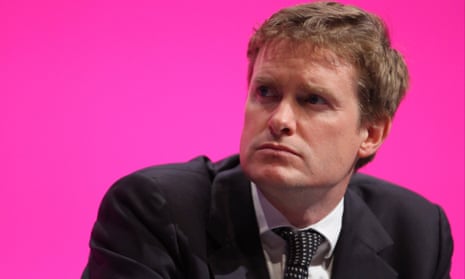The people of England should be offered their own parliament in a referendum to overcome the “democratic deficit” with the rest of the United Kingdom, the former shadow education secretary Tristram Hunt has said.
A referendum would allow England to experience the same kind of “democratic awakening” that has occurred in Scotland, which has held three referendums on its constitutional future since 1979.
In a speech to the Centre for English Identity and Politics at Winchester University on Thursday, Hunt will say: “Nobody who campaigned in Scotland during the referendum could fail to be shaped by the experience. It was to reconnect with the power and wonder of democracy, to see an entire nation debate and debate again its culture, its identity and every single aspect of its future.
“I want that for England. I want the English to experience the same kind of democratic awakening as we have seen in Scotland.”
Hunt, who returned to the backbenches after the election of Jeremy Corbyn as Labour leader, is seeking to explore fresh ideas to revive the party’s appeal to voters on the centre ground. The historian, who has written about the English civil war, believes that Labour needs to reconnect with English voters amid signs that the party has failed to respond to the growing sense of an English identity.
“Our sense of Englishness matters to us more and more, and the Labour party has fallen on the wrong side of that cultural divide,” Hunt will say as he cites research by the Labour MP and intellectual Jon Cruddas who argues that socially conservative voters are the most likely to have deserted Labour.
Hunt will add: “They value home, family and their country. They feel their cultural identity is under threat. They yearn for a sense of belonging and national renewal. Tradition, rules and social order are important to them. And, tragically, they feel that Labour no longer represents them, or understands their lives. In short, they felt we didn’t value England, and we’re not on the side of the English.”
Hunt will say that Labour’s planned constitutional convention should argue for a referendum on whether to establish an English parliament.
“My instinct is that we need a proper English parliament. But some prefer regional assemblies, and the jury is still out on the new English votes for English laws settlement. But these are complex issues and no one can claim to have all the answers – so we should put all three on a ballot and let the English people decide. Because it is only through the big, broad, inclusive debate a referendum brings that we will arrive at the constitutional settlement both Britain and England need to thrive.”
Hunt’s calls for an English parliament puts him outside the current Labour mainstream.
Gordon Brown argued before the last election that Westminster acts as both a parliament for England and the United Kingdom. The former prime minister, who rejected the Tory mechanism for creating English votes for English laws, said that English MPs should bear in mind their overwhelming strength at Westminster.
“It follows that the rules needed to respect and reassure the minorities, who might always be outvoted, have to be different from those needed to uphold the majority,” Brown said as he pointed out that English MPs account for 533 out of 650 because England makes up 84% of the UK population.

Comments (…)
Sign in or create your Guardian account to join the discussion